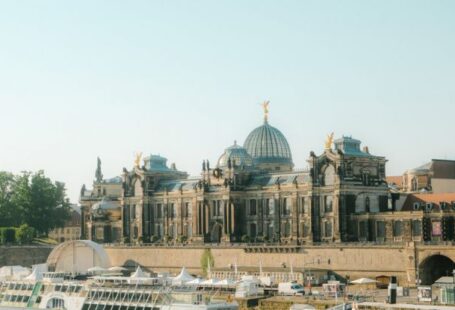Nestled in the heart of Rome, the birthplace of espresso, the coffee bar scene is a fundamental aspect of Italian culture. However, with the rise of modern coffee bars in the Eternal City, a juxtaposition between tradition and innovation has emerged. How do these modern coffee bars integrate into Rome’s traditional scene, maintaining the essence of Italian coffee culture while adapting to contemporary trends?
The Evolution of Coffee Culture in Rome
For centuries, coffee has been an integral part of daily life in Rome. The traditional Italian coffee culture revolves around quick espresso shots consumed standing at the bar, accompanied by lively conversations and a sense of community. However, as Rome embraces modernity, the coffee scene has evolved to cater to changing preferences and lifestyles.
Embracing Innovation in Coffee Bars
Modern coffee bars in Rome offer a departure from the traditional espresso experience, providing a more diverse menu that includes specialty coffee drinks, cold brews, and artisanal pastries. These establishments often feature sleek, contemporary decor, minimalist design, and a focus on sustainability. By incorporating elements of the third-wave coffee movement, these coffee bars appeal to a younger, more discerning clientele while preserving the high standards of Italian coffee craftsmanship.
Creating a Welcoming Atmosphere
Despite their modern aesthetics and innovative offerings, modern coffee bars in Rome strive to maintain a sense of warmth and hospitality that is characteristic of traditional Italian cafes. Baristas greet customers with a friendly “Buongiorno” or “Ciao,” fostering a sense of familiarity and connection. The emphasis on customer service and personalized interactions ensures that patrons feel welcome and valued, enhancing the overall coffee-drinking experience.
Blending Tradition with Innovation
One of the key ways modern coffee bars integrate into Rome’s traditional scene is by striking a balance between tradition and innovation. While these establishments may offer trendy drinks and contemporary decor, they remain rooted in Italian coffee culture by upholding the principles of quality, precision, and passion for coffee. Baristas undergo rigorous training to perfect their craft, ensuring that each cup of coffee is prepared with the same dedication and skill as in traditional cafes.
Preserving Rituals and Customs
Despite the changes brought about by modern coffee bars, certain rituals and customs associated with Italian coffee culture remain intact. The morning ritual of having a quick espresso at the bar before starting the day is still a cherished tradition for many Romans. Additionally, the concept of “caffe sospeso,” where customers pay for an extra coffee to be given to someone in need, continues to be practiced in both traditional and modern coffee bars, reflecting the spirit of generosity and community that defines Italian coffee culture.
Sustainability and Ethical Sourcing
In keeping with the global trend towards sustainable and ethical practices in the coffee industry, modern coffee bars in Rome prioritize quality, traceability, and environmental consciousness. Many of these establishments source their coffee beans from small, independent producers who adhere to fair trade principles and prioritize environmental stewardship. By promoting transparency in the supply chain and supporting ethical sourcing practices, modern coffee bars in Rome contribute to a more sustainable coffee culture while honoring the traditions of Italian craftsmanship.
Embracing Change while Preserving Heritage
As Rome’s coffee scene continues to evolve, the integration of modern coffee bars into the city’s traditional landscape represents a harmonious blend of innovation and heritage. By embracing change while preserving the rituals, customs, and values that define Italian coffee culture, these establishments contribute to the rich tapestry of Rome’s culinary heritage. In a city where tradition and innovation coexist harmoniously, modern coffee bars serve as a testament to the enduring appeal of Italian coffee culture in the 21st century.





